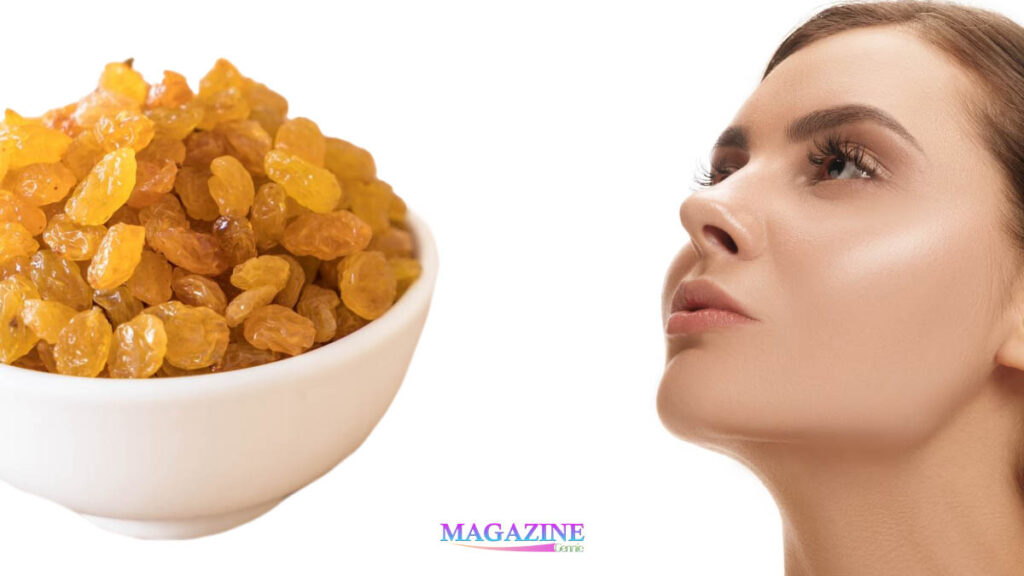Eating soaked raisins can have several disadvantages. Raisins are high in dietary fiber, and consuming them in large quantities without adequate water intake may lead to indigestion, bloating, and gas. Overconsumption of raisins, including those soaked in water, can also cause allergic reactions in some individuals, lead to a bacterial infection, and contribute to a high intake of calories and natural sugars, potentially impacting blood sugar levels and weight management. It’s important to consume soaked raisins in moderation to avoid these potential side effects and to enjoy their health benefits, such as being a good source of antioxidants and iron.
Table of Contents
Disadvantages of Eating Soaked Raisins
While soaking raisins offers some potential benefits like easier digestion and increased nutrient absorption, there are also some potential downsides to consider before making them a regular snack:
1. Sugar Content: Regardless of soaking, raisins are still concentrated sources of natural sugars. Excessive consumption can lead to an increased risk of cavities, weight gain, and blood sugar fluctuations, especially for individuals with diabetes or prediabetes.
2. Reduced Fiber: Soaking raisins can soften their texture and potentially leach out some soluble fiber. While this might aid digestion for some, it also reduces the overall fiber content, which is important for gut health and managing blood sugar levels.
3. Nutrient Loss: Prolonged soaking might lead to the loss of some water-soluble vitamins and minerals present in raisins, such as vitamin C and potassium. However, the extent of this loss depends on the soaking duration and technique.
4. Increased Spoilage Risk: Soaked raisins are prone to quicker spoilage due to the increased moisture content. It’s crucial to ensure proper storage in an airtight container in the refrigerator and consume them within a few days.
5. Potential Allergic Reactions: While it’s rare, some individuals might be allergic to raisins or sulfites used in their commercial processing. Pay attention to any adverse reactions like rashes, itching, or breathing difficulties after consuming soaked raisins.
6. Interaction with Medications: Depending on the medication you’re taking, consuming large amounts of raisins could potentially interact with it. Consult your doctor if you have any concerns.
Overall: Soaked raisins can be a part of a healthy diet in moderation. However, it’s important to be mindful of potential downsides like increased sugar intake, reduced fiber, and spoilage risk. Consider these factors and enjoy them responsibly!
Remember, consulting a healthcare professional or registered dietitian can provide personalized advice based on your individual health needs and preferences.
See also : Advantages and Disadvantages of Copper Utensils for Food
Disadvantages of Eating Raisins for Skin

Eating raisins can have several disadvantages for the skin, including the potential for allergic reactions, weight gain due to their high calorie content, and the risk of excessive antioxidant intake, which may lead to certain diseases. Raisins are not customarily considered food allergens, but they can cause allergic reactions in some individuals, leading to symptoms such as increased histamine, nasal congestion, and skin rashes.
Additionally, the high calorie content of raisins can contribute to weight gain, and excessive intake of antioxidants may have adverse effects on the body. It’s important to consume raisins in moderation to avoid these potential side effects and to enjoy their health benefits for the skin, such as improved blood circulation and prevention of skin damage and sagging
Raisins generally offer numerous benefits for overall health, including some potential benefits for skin health. However, there are some factors to consider if you’re concerned about potential downsides regarding skin when eating raisins:
Sugar Content: The primary concern is the sugar content in raisins. While natural sugars present no problem in moderation, excessive sugar intake can indirectly affect skin health. High sugar intake is linked to inflammation, which can worsen conditions like acne and eczema.
Glycemic Index: Raisins have a moderate glycemic index, meaning they can still cause blood sugar spikes. These spikes can trigger hormonal fluctuations that can impact sebum production and potentially contribute to breakouts.
Potential Allergic Reactions: While rare, some individuals might be allergic to raisins or sulfites used in processing. Allergic reactions can manifest as skin symptoms like rashes, itching, and swelling.
Other Considerations:
- Individual Differences: Not everyone experiences the same effects from food. What might negatively impact someone else’s skin might not affect you. It’s important to monitor your own reactions and adjust consumption accordingly.
- Moderation is Key: The key to enjoying raisins without potential downsides is moderation. Consume them as part of a balanced diet and don’t go overboard.
- Hydration: Staying hydrated is crucial for healthy skin. If you consume raisins, ensure you’re also drinking plenty of water to balance their sugar content and support overall skin health.
Remember: Consulting a dermatologist or registered dietitian can provide personalized advice based on your specific skin concerns and dietary needs. They can help you assess potential risks and benefits of including raisins in your diet for optimal skin health.



